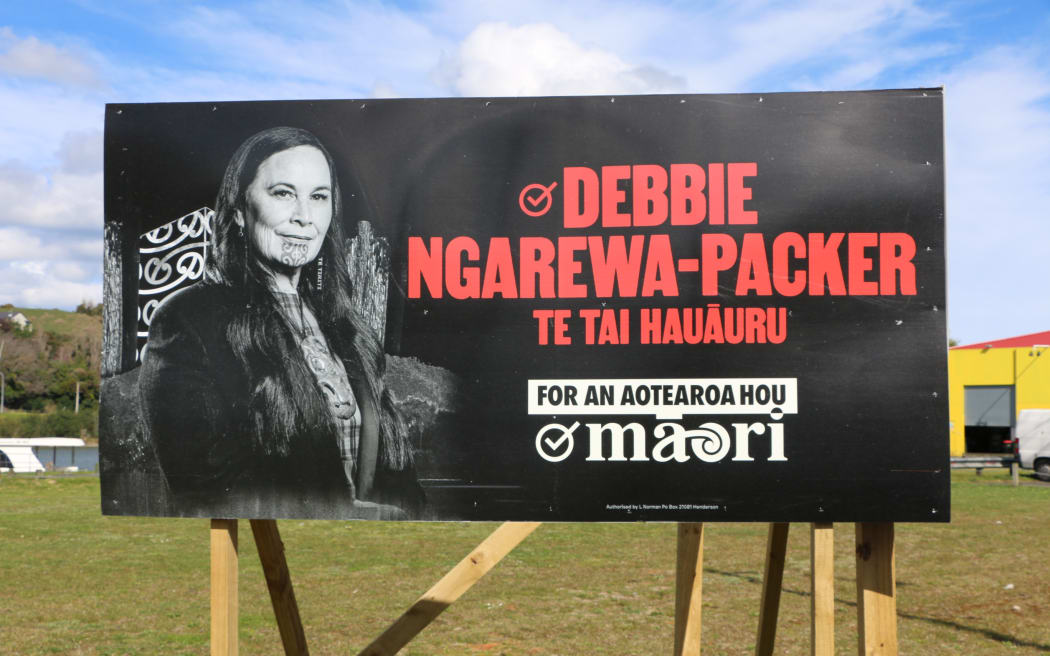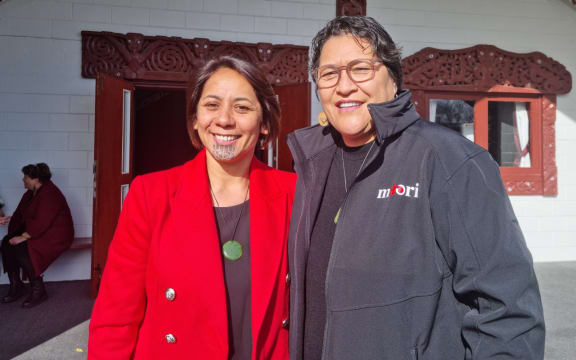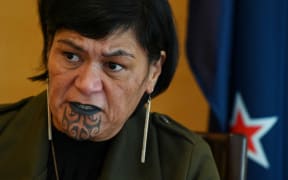
Debbie Ngarewa-Packer - Te Tai Hauāuru Photo: RNZ / Katie Scotcher
Te Pāti Māori's victorious election haul could have a knock-on effect on coalition arrangements if it gains an extra seat or two, once special votes are counted.
The party won four of the seven Māori seats on Saturday, and co-leader Debbie Ngarewa-Packer was optimistic it could gain up to another two seats.
"There's nearly 20 percent of the vote yet to be cleared and it's always gone in our favour. We've got four seats and we may take all [of the the Māori seats].
"In 2020, I got in because our list increased so much from the special votes. So now we are expecting some more good news."
The party claimed victories in Waiāriki, Te Tai Hauāuru, Te Tai Tonga and Hauraki-Waikato, where 21-year-old Hana-Raawhiti Maipi-Clarke ousted Labour's Nanaia Mahuta, ending her 27-year Parliamentary career.
In Te Tai Tonga, which covers the South Island, Tākuta Ferris ousted Labour's Rino Tirikatene, who has held the electorate since 2011.
Because the four seats won by Te Pāti Māori surpass their share under the party vote, there could be an overhang in Parliament, meaning National and ACT could need more MPs to get a majority in a super-sized Parliament.
Speaking from her Taranaki home, where she comfortably won the Te Tai Hauauru seat for the first time, Ngarewa-Packer said she was "overwhelmed" by the party's successes on election night.
"I'm extremely humbled and overwhelmed by the support that we got from within the electorate and across the motu."
The final outcome would not be known until special votes were declared on 3 November.
It was not good news for Meka Whaitiri, however, losing the Ikaroa-Rāwhiti seat to Labour's Cushla Tangaere-Manual after jumping waka to Te Pāti Māori.
Whaitiri was not picking up the phone on Monday, but Ngarewa-Packer said she still counted her loss as a win.

Ikaroa-Rāwhiti candidates Labour's Cushla Tangaere Manuel (left) and Te Paati Māori's Meka Whaitiri (right) after a debate at Ōrongomai Marae in Upper Hutt. Photo: RNZ / Anneke Smith
"We set out to grow the movement and we had different targets for 2023-2026. We're three to six years ahead of our targets.
"Some are sort of saying, 'Oh, but you know, Meka didn't get in,' but… actually as Te Pāti Māori she grew the seat and Ikaroa-Rāwhiti in a way that's never been."
The victor in that seat, Tangaere-Manual, said she was grateful the electorate jumped behind her and she could not wait to get stuck in.
"My first priority is to go back to all the people... as I was going around on the campaign trail, they told me it was important to have an MP there [they] would see, who would listen and who would follow through.
"That's why I traversed the electorate about four times in the short run that I had, so it's only fitting that I go back, say thank you and let those people who haven't met me yet tell me what is important to them."
Tangaere-Manual was the only Māori seat that Labour won with a comfortable majority. Labour ministers Kelvin Davis won Te Tai Tokerau and Peeni Henare won Tamaki Makaurau by fewer than 500 votes, which could change once special votes were declared.
And back in Wellington, Labour's Willie Jackson was putting on a brave face at the airport as he arrived to a much reduced Labour Māori caucus of nine.
"The wave was against us, but I'm proud that we still got three seats and we've got we still got a strong Māori caucus... but that's how it goes."






